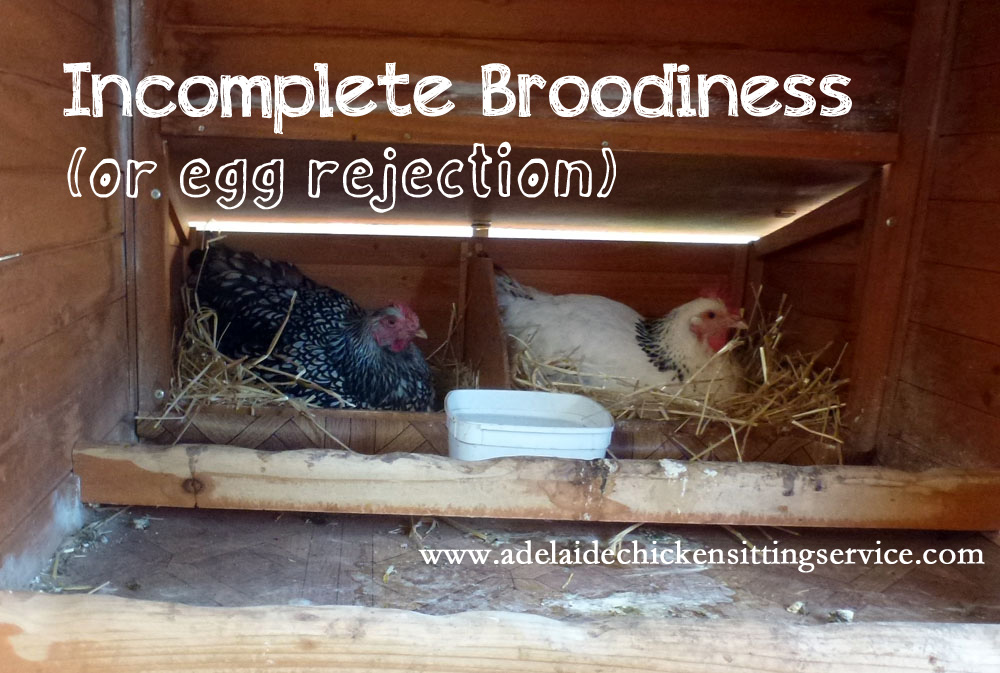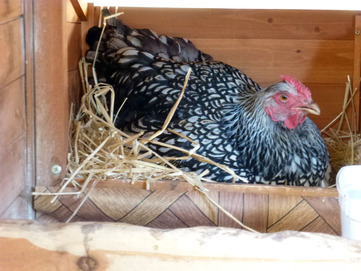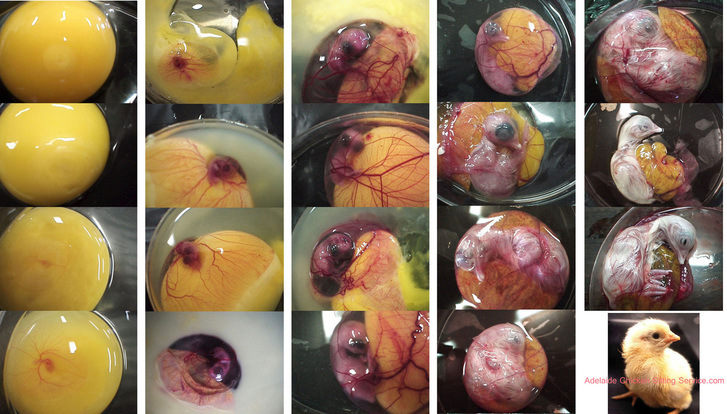It can happen, and it did this year to me amongst my own hens. And its creates an interesting situation that is rarely talked about amongst backyard chicken owners.
What causes rejection?
It can be a number of things, and the thing that happened with my girls is that I moved them and the eggs to a different shed. What complicated matters was that one egg had been cracked.
Cracked eggs are salvageable by using either PVA glue or dripping candle wax from a plain candle. This egg should not be returned to the nest, but instead kept in an incubator.
So I broke two important rules. I returned the cracked egg to the broody hens AND in a different shed.
The result was mayhem.
The broody hens attacked the returned egg because the crack was still visible. My girls have recently learnt how yummy a broken egg can be, but I don't think they were expecting something else or someone else to be inside. The first thing they attacked was the chicks head. There was a terrible mess in the shed.
They had traumatised themselves to such a degree that they refused to sit on the remaining eggs. It was egg rejection. All three (3) hens were out of there! They would not go back in.
My hubby and I quickly gathered up the remaining 10 eggs and set up our new incubator.
We are now proud parents of 6 very beautiful Black Australorps who hatched on March 5th.
But what happened to the broody hens?
Because they had been sitting on the fertile eggs for so long they had been conspicuously absent from the rest of the flock.
1. Metabolism
Their metabolism had slowed to such a degree that they only ever needed to leave their nests every couple of days if not longer. Food and cool water was always in the coop with them within pecking distance, but rarely touched.
Their combs become quite pale and they lose quite a fair bit of condition off of their bodies during their sitting.
They go through a whole hormonal change to sit for that long. Its quite different to a broody without eggs. The mindset is key to those changes. Those eggs get a little heavier as time goes on, they know they have a job to do.
So when their sitting is interrupted by something like egg rejection the have a long road to travel to get back to being normal.
The first thing you will notice is a change in their poos. Its a lot more sloppy and watery than normal. If in doubt, consult your vet as she could have other issues from being confined for so long. But since all three of my hens who were egg sitting have the same poo, its probably safer to say that this is hormonal.
Their combs take time to recover as well as their appetite. Their metabolism is having a very confusing time. Right now my girls should be in their Hatching Metabolism which means creating high humidity for the chicks to hatch. Instead they are wandering around the garden with the other hens wondering what they are meant to be doing.
2. Pecking Order
Since the girls have been absent from the flock for so long, the outside girls decided to rearrange to pecking order.
I noticed things changing as the broodies came out for a little nibble every second day that relationships were strained. By the time they flew the coop on egg rejection day, they flew right into a pecking order committee meeting with the other girls. And guess where that committee had voted the broodies to be? At the bottom of the order!
3. Resuming Egg Laying
Broody hens will usually cease laying for up to 21 days at the very most. That time can fluctuate is by no means set in concrete.
Even though our eggs have now hatched, it does not mean that our ex-broodies are ready to start laying as of this week. Their whole system has gone through a shock during the rejection phase. We are giving them plenty of grace to resume laying.
We make sure that they are fed with a handful of Livamol powder through some mash (finely crushed grain) every second morning, and alternative days with some Protexin powder (probiotic) through their morning porridge to help boost their vitamin intake and normalise their gut flora.






 RSS Feed
RSS Feed